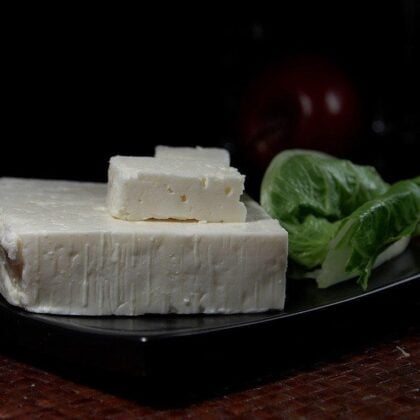
Does your baby suffer from colic, diarrhoea or regurgitation after feeding? Are you wondering whether this could be a sign of lactose intolerance ?
It's a legitimate concern, but one that needs to be nuanced with precision and kindness.
In infants, lactose intolerance is rareBut it can cause real discomfort - and a lot of anxiety for parents. In this article, we take a look at the symptoms to watch out forthe various causes possible and tailored solutionsdepending on whether the child is breast-fed or bottle-fed.
What is lactose intolerance in babies?
Lactose intolerance occurs when a baby's body does not produce enough lactose. lactasethe enzyme responsible for processing lactose. Without this enzyme, lactose is not digested properly and can cause uncomfortable digestive problems.
This intolerance is more common in adults, but can also affect some infants.
However, it is important to distinguish between intolerance to lactose in cow's milk allergywhich is a more serious allergic reaction directly linked to the immune system.
Lactose intolerance and cow's milk allergy: not to be confused
First of all, we need to distinguish between two concepts:
-
Lactose intolerance inability to properly digest lactose (milk sugar), by lactase deficiency.
-
Allergy to cow's milk immune reaction to certain milk proteins, which can be severe and requires strict avoidance.
Ultimately, lactose intolerance in babies is much rarer than allergyand often temporary.
How does lactose intolerance affect babies?
Signs of lactose intolerance in infants can be varied and appear after meals.
Parents should be alert to the following signs:
- Bloating The baby may have a swollen tummy, which can be painful.
- Gas and colic Gas: babies can suffer from excessive gas and abdominal colic.
- Diarrhoea : Diarrhoea is a common symptom of lactose intolerance.
- Frequent regurgitation Some lactose-intolerant babies may vomit after drinking milk.
- General discomfort The baby may cry more than usual and have trouble sleeping.
What causes lactose intolerance in babies?
In babies, lactose intolerance can be temporary or congenital.
Intolerance temporary
It can occur after :
-
a digestive infection (gastroenteritis),
-
inflammation of the intestinal mucosa.
In these cases, the enzyme lactase is produced in insufficient quantities. It is reversible lactose digestion returns to normal once the intestine has healed.
Intolerance congenital (very rare)
This is a genetic defect present from birthwhich completely prevents the production of lactase. It manifests itself in the first few hours of life, after the first milk intake. The diagnosis is made very early, and a lactose-free milk is then required on a permanent basis.
Breast-fed babies
Lactose intolerance in breastfed babies is extremely rareBreast milk is perfectly suitable. However, some babies may have a form of lactose overload in the event of very frequent feeds, without access to milk at the end of the feed (richer in fat, less lactose).
📝 In this case, a few adjustments to breastfeeding are all that's needed (spacing out feeds, emptying one breast completely before offering the other). Support from a lactation consultant may be useful.
Bottle-fed babies
Some infant formulas contain lactose, others do not. If a baby has a known intolerance :
-
You can opt for a lactose-free preparation,
-
Or a formula partially hydrolysed (easier to digest).
In all cases, the choice of milk must be validated by a paediatricianbecause the objective remains to guarantee optimal growth and good nutritional intake.
A word from LACTOLERANCE
At LACTOLERANCE, we specialise in lactose digestionfor young and old alike. Although our supplements are suitable for children aged 3 and over, we would like to emphasise the importance of informing and supporting families at the first sign of doubt.
👶 For toddlers, support must be personalised, medical and caring. In the event of suspected lactose intolerance in infants, only a health professional will be able to make a diagnosis and propose appropriate solutions.

Hello, I'm Vincent
Like you, I'm lactose intolerantI know exactly what you're going through and the difficulties you encounter on a daily basis. For over 10 years, I've been helping our customers to use our dietary supplements and giving advice and tips on how to improve their digestive comfort. I'm also a keen cook and gourmet, so you'll find my favourite recipes for a lactose-free diet in this blog.
Lactose intolerance is not inevitable! With LACTOLERANCE you can digest with complete peace of mind





